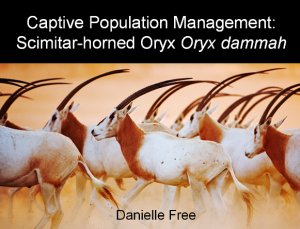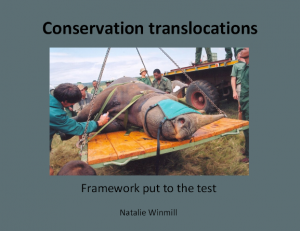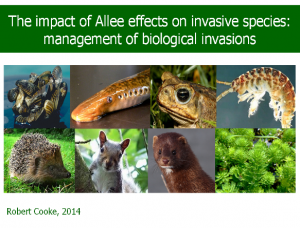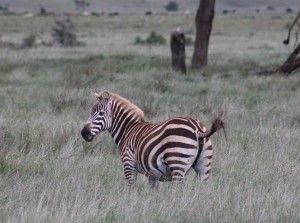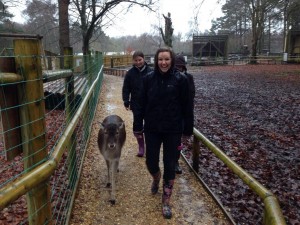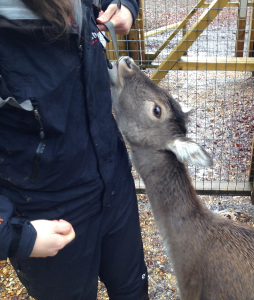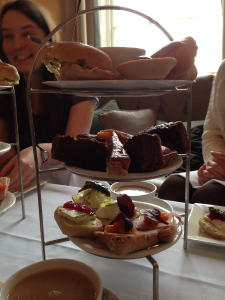Hi, I’m Robert Cooke, the token guy on the course, and I will be telling you all about the delight that is exam season!
As always, after Christmas we all realised how much more work we should have done over the Christmas holidays, with assessments coming in thick and fast as soon as we returned to Southampton. The frenzy began with our individual presentations, where each of us chose a topic from the material covered in lectures and then aimed to become mini-experts in our topics. Conservation translocations, the Allee effect, evaluation of the IUCN reintroduction guidelines and managing populations for genetic diversity are just some of the interesting topics that were presented. Everyone presented clearly and precisely and the topics sparked intense debates about the state of conservation.
The next stage was our group presentations, meaning we had two presentations in two weeks – an intentional plan by our course leaders, aiming to develop our presentational skills, critically important in modern conservation. These presentations contributed to our fieldwork module, and were based on surveys we had previously conducted at Lewa Wildlife Conservancy in Kenya. Presentations included a behavioural study of Eland (Rachel and Laura), evaluation of a vegetation survey (Dani and Eleanor) and a review of the Grevy’s zebra foal patrol and stripe identification database (Natalie and I), with much discussion over a partially albino Plains zebra.
Next on the to-do list was a statistics-based grant proposal. This required the use of the statistics programme R, a new programme causing quite a stir in the academic world. Getting to grips with R has taken its time but is very much a skill worth having, with everyone from paleobiologists, to PhD students and even an old coursemate from Environmental Science wanting to join in on our statistics module. Worth 70% of our total stats module, this was high-pressure coursework and led to one or two late nights in the library! Nevertheless, it has been very beneficial developing techniques in survey design, data analysis and project budgeting – all skills required by a biologist when planning their work in the field.
The final instalment for a tough January was our only exam on the 21st January, which was unfortunately the same day as Dani’s birthday. Poor Dani! If you ever wanted to see the step up between first year of a BSc and first semester of an MRes this was the time to see it. While waiting outside the exam hall, discussions among the Freshers consisted of plans for the evening and how hard they were going to party; whereas discussions among us old hats consisted of what revision snacks we had been consuming buckets of, with chocolate, Pringles and biscuits all vying for first place!
Then, relief! It was all over! With assessments and exams out of the way for a while, it was now our chance to celebrate Dani’s birthday. Lunch and lots of ice cream were the order of the day, with all talk of exams banned! Being on such a small course has made us a tight-knit team, great for support and celebration.
After a week of rest and recuperation it was time for an Outdoor First Aid course. If we weren’t close beforehand we certainly were afterwards, with lecturers, supervisors and coursemates all getting involved in the two-day course. This enabled us to see a new side to the lecturers, including the infamous humour of Patrick Doncaster. It was now my turn to have a birthday fall on a course event; but there are worse ways to spend a birthday than on course with cake and friends!
The final member of the winter birthday crew was Laura Pratt, who was lucky enough to have her birthday on a day off! This allowed us to organise activities! Rachel Gardner, chief organiser, decided we would go to the New Forest Wildlife Park. It was a lovely, if quite soggy, trip with the team making a new best friend in a friendly Sika deer.
A much civilised afternoon tea at a nearby hotel followed, with animal cupcakes made by Natalie Winmill the star of the show! I remember one of my BSc tutors telling me that you know you’re a scientist when you start discussing scientific topics on your days off. Well we must be great scientists as we talked non stop about all things science! We covered key conservation and discussed our upcoming individual projects, as well as one or two sidetracks into topics such as Frozen and dogs, but hey, it’s our day off, it’s allowed.
I will leave you with the knowledge that we have started our project designs and will update you on our individual projects in the coming months.
Written by Robert Cooke
Posted By : Eleanor Rendells